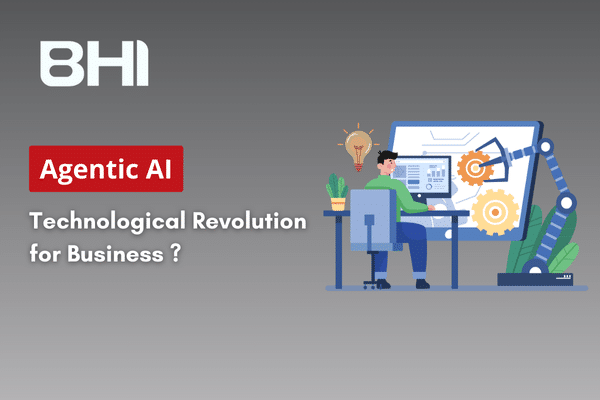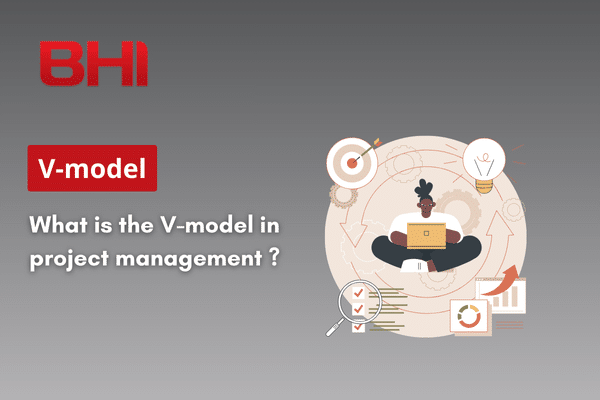In a world where digital transformation is accelerating, artificial intelligence continues to evolve, introducing new concepts that redefine our relationship with technology. Among these innovations, agentic AI is emerging as a major advancement that’s capturing the attention of tech professionals. But what exactly is agentive AI, and what impact can it have on your organization ? Let’s explore this technology that’s already transforming our work methods.
What is Agentive AI ?
Agentive AI represents an artificial intelligence system capable of achieving specific objectives with limited supervision. Unlike traditional AI models that only respond to specific commands, an AI agent is an autonomous system that can :
- Observe its environment
- Make decisions independently
- Act to achieve defined goals
- Interact with other systems or external tools
- Access various resources (APIs, databases, web)
- Accomplish complex tasks with minimal human intervention
The term “agentive” refers to the agency (power to act) of these models—their ability to act independently and in a targeted manner. This technology represents a crucial step toward truly autonomous AI systems.
How Does Agentive AI Work ?
Agentive AI tools generally operate according to a structured process:
- Perception: Collecting data from its environment via APIs, databases, or user interactions
- Reasoning: Processing data to extract meaningful information
- Goal Setting: Establishing a direction based on objectives or user inputs
- Decision Making: Evaluating possible actions and choosing the optimal option
- Execution: Implementing the chosen action via interactions with external systems
- Learning and Adaptation: Evaluating results and collecting feedback to improve future decisions
- Orchestration: Coordinating and managing different agents and systems involved
Agentive AI relies on generative AI techniques by using large language models (LLMs) to function in dynamic environments. While generative models create content from learned patterns, agentive AI extends this capability by applying generative results to specific objectives and using external tools to accomplish concrete tasks.
The Advantages of Agentic AI
Autonomy and Proactivity
The most significant advancement of agentive systems is the autonomy they can demonstrate to perform tasks without constant human supervision. Agentive systems can :
- Tackle long-term objectives
- Manage multi-step problem-solving tasks
- Track progress over time
- Act proactively without waiting for explicit instructions
Adaptability and Specialization
Agents can learn from their experiences, take feedback into account, and adjust their behavior. They can specialize in specific tasks or work together in a multi-agent architecture to solve complex problems:
- Some simple agents reliably execute a single repetitive task
- Others use perception and memory capabilities to solve complex problems
- In a multi-agent architecture, a “driver agent” can supervise multiple specialized agents
Intuitive Interaction and Increased Productivity
Since agentive systems are powered by LLMs, users can interact with them in natural language:
- Entire software interfaces can be replaced by simple written or voice commands
- Considerable time savings by avoiding learning new interfaces
- Automation of repetitive tasks freeing human resources for higher-value work
Practical Applications of Agentic AI
In Business
- Marketing and Sales: Lead generation, qualification, personalized follow-up, scheduling demonstrations, customer data analysis
- Customer Support: Autonomous problem resolution, intelligent escalation to human agents, interaction analysis
- Finance: Real-time fraud detection, market analysis, trading automation, personalized risk assessment
In Specialized Sectors
- Healthcare: Assisted diagnosis, drug discovery, personalization of treatment plans, patient monitoring
- Manufacturing: Predictive maintenance, supply chain optimization, autonomous inventory management
- Cybersecurity: Continuous network monitoring, anomaly detection, automated threat response
- Human Resources: Resume screening, interview scheduling, onboarding of new employees
Challenges and Risks to Consider
Despite its potential, agentive AI presents some significant challenges:
Implementation Complexity
- Integration with existing systems
- Need for specialized technical skills
- Defining appropriate autonomy parameters
- Initial development costs
Ethical and Governance Questions
- Risks of autonomous system “derailment”
- Transparency and explainability of actions (“black box” problem)
- Delineation of legal responsibility
- Potential problems related to poorly designed reward functions
Environmental Impact and Resources
- Intensive use of computing resources
- Significant storage and processing power needs
- Carbon footprint to consider
The Future of Agentic AI
Emerging trends suggest several likely developments:
- Collaborative multi-agent systems: Specialized agents working together to solve complex problems
- Generalized agents: Systems capable of learning and accomplishing various tasks without specific training
- Human-machine hybrid systems: Environments where AI agents and human employees collaborate seamlessly
- Contextual autonomy: Agents capable of adjusting their level of autonomy according to context
According to projections, AI (including agentive AI) could contribute up to $15.7 trillion to the global economy by 2030, more than the current economic output of China and India combined.
Conclusion
Agentive AI represents a major strategic opportunity for companies that know how to adopt it judiciously. Like any transformative technology, it brings its share of advantages and challenges. The key to success lies in a balanced approach that values innovation while taking into account ethical, organizational, and human implications.
Organizations that successfully transition to agentive AI will be those that consider this technology not as a simple automation tool, but as a strategic partner capable of augmenting human capabilities and creating new forms of value.

















